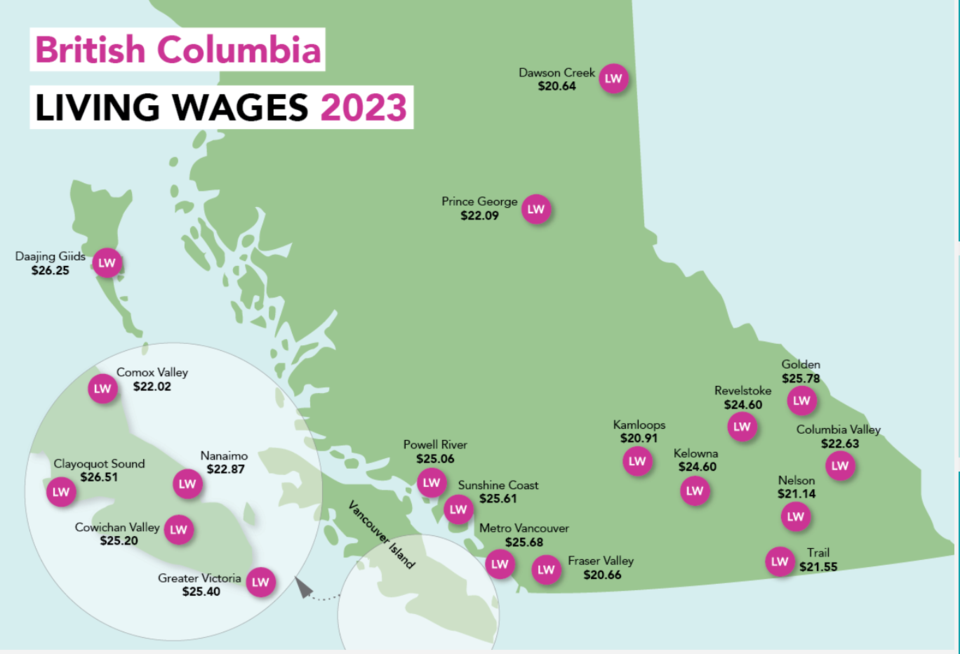Two parents working full-time in Metro Vancouver now need to earn at least $25.68 per hour to support two children, according to new estimations from the Canadian Centre for Policy Alternatives.
General inflation over the past year has pushed income requirements up 6.6 per cent, from a so-called "living wage" of $24.08 per hour in 2022. A typical family is needing to spend about $4,000 more after-tax dollars this year than last year, to maintain a "bare-bones" living.
Such earnings will “support the healthy development of their children, escape severe financial stress and participate in the social, civic and cultural lives of their communities,” stated the think-tank that favours more equitable government-based social and economic policies.
The November 2023 report called Working for a Living Wage says one in three two-parent families in Metro Vancouver have total incomes below the living wage.
“People who work for low wages face impossible choices — buy groceries or heat the house, keep up with bills or pay the rent on time. The result can be spiralling debt, constant anxiety and long-term health problems. In many cases it means working long hours, often at multiple jobs, just to pay for basic necessities,” assert authors Iglika Ivanova, Anastasia French and Tania Oliviera.
This living wage still does not cover debt payments, retirement savings, education savings, vacation funds or anything beyond minimal recreation. Nor does it cover emergencies and caring for anyone in a family who may be disabled, ill or elderly.
The report extracts statistics on costs for an average basket of goods, recreation fees, child-care fees and rental costs (excludes an analysis for those with mortgages).
Among the largest expenditures of the “bare bones” budget assumes monthly food costs of $1,183, shelter of $2,895 and child care of $703.
“B.C. has seen an increase in the number of licensed child-care spaces charging only $10 a day, although these still account for a small minority of available spaces (approximately 15% of all licensed spaces in Metro Vancouver as of June 2023),” the report notes, citing Ministry of Education and Child Care figures.
Outside of Metro Vancouver, the living wage varies: In Dawson Creek, it is $20.64; in Kamloops, it is $20,91 and in the Fraser Valley, it is $20.66. But larger urban areas such as Victoria and Kelowna have similarly high living wages.
Nanaimo saw the largest spike in its living wage — from $20.26 to $22.87, up 12.9 per cent from last year.
The centre argues policies such as affordable housing, universal access to low-cost child care, free transit, a public dental care plan and pharmacare can offset the cost burdens on working families.
The centre also argues the government should mandate rent control on units: “While the B.C. government caps annual rent increases for existing tenants (up to 2% in 2023 and 3.5% in 2024), staggering rent increases occur when units turn over to a new tenant, affecting renters who need to move.”
The report notes 400 employers are committed to a living wage. This year, Vancouver Mayor Ken Sim and his ABC Party axed such requirements for City of Vancouver workers.



